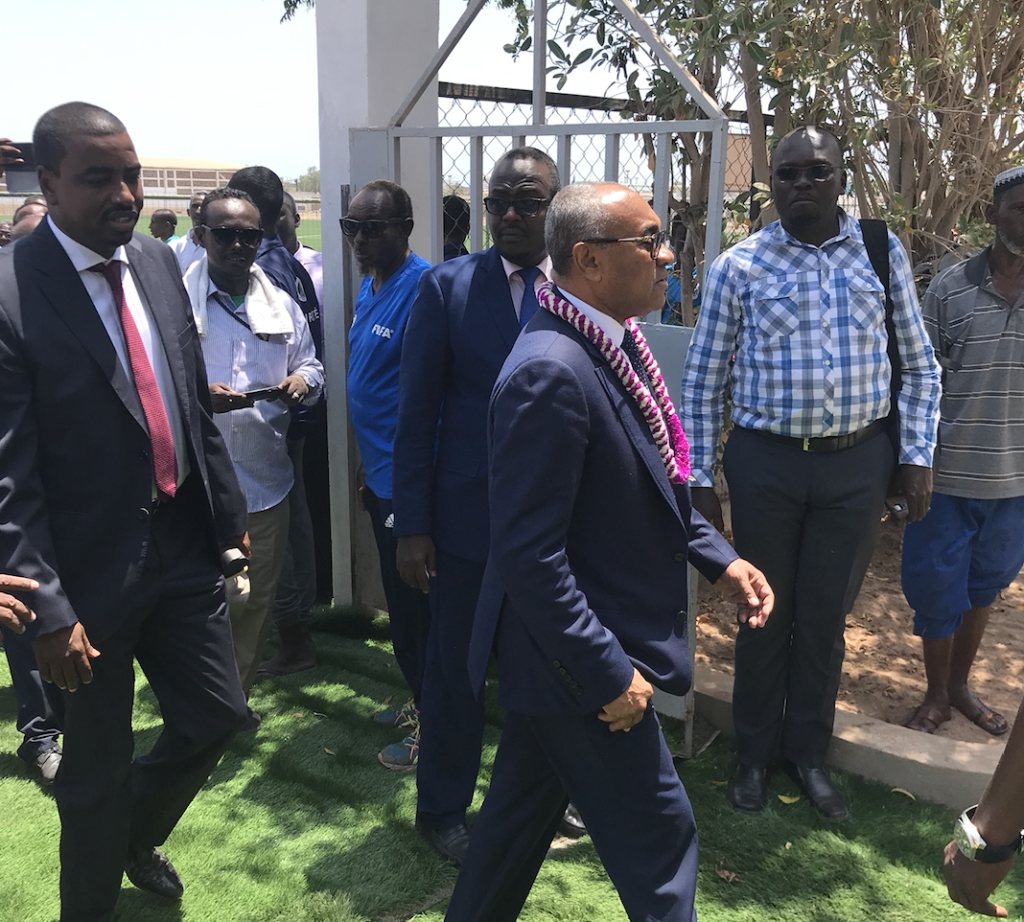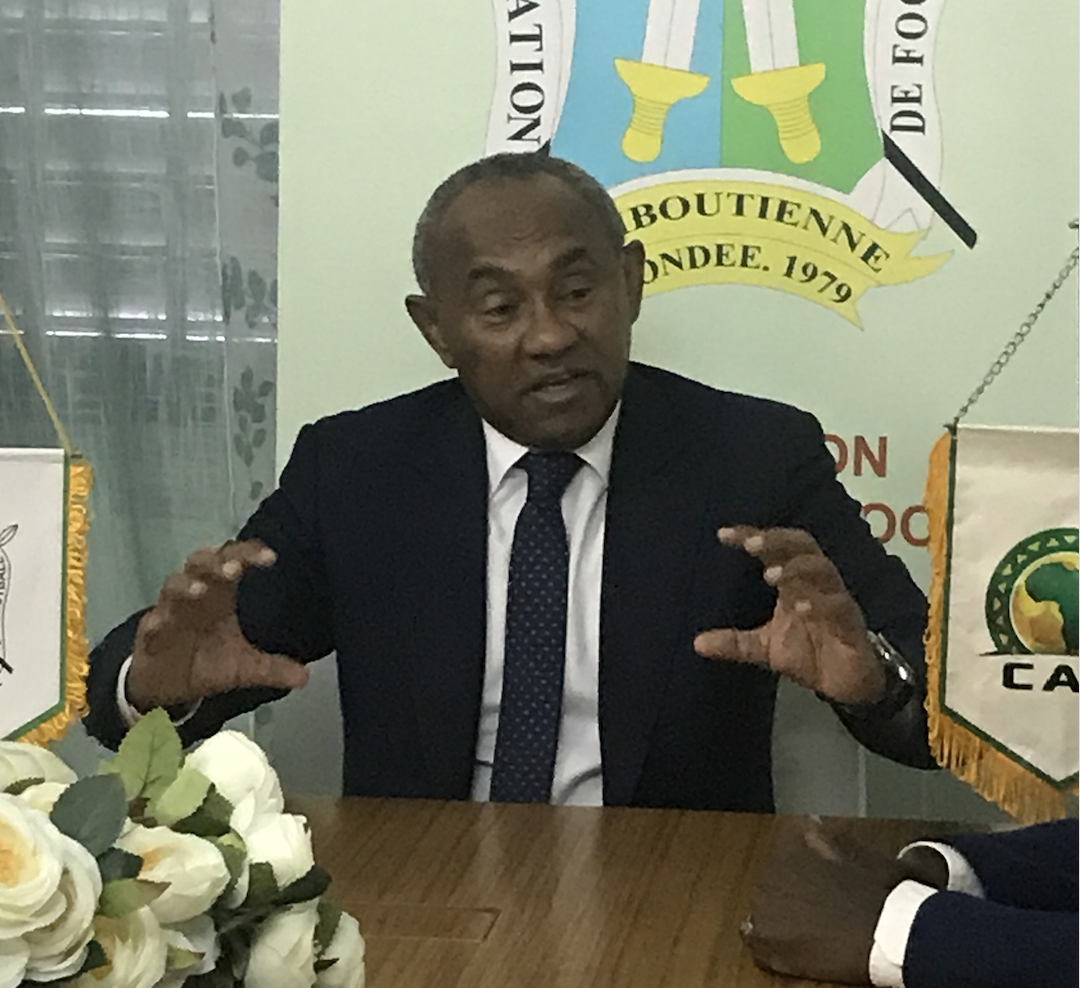In the three decades I’ve covered African football, I have gone through the entire gamut of emotions: exhilaration – over some of the continent’s great moments at the Africa Cup of Nations and the World Cup; frustration – over the comedic errors our football governors repeatedly make; and deep despair, as one continually questions whether the custodians of a game that means so much, to Africa’s one billion people, will ever live up to their responsibilities and do their darned jobs diligently.
But even a supposedly hardened hack, like myself, is gobsmacked by what happened in Tunis, Tunisia on Friday 31 May – and in the seven days that have followed, inflicting serious wounds on the credibility of the continental game and the legitimacy of the 20 men and two women governing it.
It was a show of shame at the Rades Stadium, where the decisive leg of the CAF Champions League final ended in a stalemate, after Walid El Karti’s 2nd half goal for Wydad Casablanca, against Esperance of Tunis, was disallowed by Gambian Referee Papa Bakary, leading to an abandonment of the game by an aggrieved Wydad.
A visibly disturbed CAF President Ahmad and some members of his executive committee who left the VIP box – in a sharp, unexpected departure from convention – remonstrated with Said Nasri, Wydad’s President, to get manager Faouzi Benzarti and his players back onto the pitch. Ahmad’s pleas came to naught.
And so, for the first time in the 55-year history of Africa’s top club competition, a final was declared abandoned, by Gassama, after play did not go on for over one hour.
Paragraph 17 Section 11 of the CAF Champions League rules are extremely clear, about what MUST happen, concerning the drama at Rades:
“If for any reason whatsoever, a team withdraws from the competition or does not report for a match – except in case of force majeure accepted by the Organising Committee or if it refuses to play or leaves the ground before the regular end of the match without the permission of the referee, it shall be considered loser and shall be eliminated from the competition.”
The correct application of this rule led to Esperance winning the match and lifting the Champions League title for a second successive season.
That was, of course, until June 5, when a dramatic change of events took place at a two-day CAF Executive Committee emergency session in Paris, where the body blatantly violated its own rule book and ordered a replay of the second leg final, on the grounds that “the conditions of game and safety were not met during the 2nd leg… preventing the game from coming to an end.”
As a member of the executive committee freely admitted to me, in a very frank ‘off-the-record’ conversation, a few days afterwards, “the decision was a day of shame for me and my colleagues in Paris.”
CAF’s exco made the decision without the vote of Nigeria’s Amaju Pinnick, the organisation’s 1st Vice-President, who, after making his opposition to a replay clear, left the meeting before its conclusion, to catch a late flight back to London, enroute to Nigeria.
“Because of the principle of collective responsibility, I cannot publicly speak out,” the exco member, a member of the Anglophone contingent, went on.
“But to be very honest with you, I wish I was not in this executive committee meeting. The rules of the game have been violated. What do we do in the future, when another team abandons a match, in the way that Wydad has done?,” he asks.
And he didn’t stop there: “We are gradually losing all credibility as a body. The whole world saw the match and they know what happened. How do we explain a decision that goes against what the world clearly saw on television?”
In his ‘coup de grace’, the exco member encouraged Esperance to have CAF’s ruling overturned. “If I were in their shoes, they must go to the Court of Arbitration for Sport (CAS) and robustly appeal against the ruling in Paris. They have a very good case, which I think they will win,” he said.
Another CAF exco member was just as blunt. “We have erred and cannot add salt to the wound [by admitting that we have made a blunder and reverse the Paris decision],” he said.
Esperance officials are furious that the relevant Champions League rules were disregarded by CAF, as a consequence of the Paris decision, while Wydad’s combustible President, Said Nasri, repeatedly accuses the governing body’s leading officials of corruption.
Wydad came to Tunis aggrieved, after the controversial first leg in Casablanca, where they questioned the integrity and competence of Egyptian Referee Gehad Grisha, after two crucial VAR calls denied them a penalty and disallowed a goal, leading to the referee’s mysterious six-month suspension by CAF for “poor officiating”.
Grisha, one of Africa’s top referees, performed creditably in my opinion and made the right call on both counts in Casablanca.
The absence of VAR in Tunis, as a result of a royal cock-up by Hawk-Eye, the UK-based technology provider, which miserably failed to deploy the equipment in time for the second-leg and subsequently wrote a grovelling letter of apology to CAF on May 31 – the day of the final – only poured fuel on the raging flames of this very volatile tie.
“Hawk-Eye had arranged with a THIRD PARTY for one set of VAR equipment to be shipped from Riyadh (in Saudi Arabia) to Tunis… the third party was responsible for exporting the equipment and shipping. We were informed on 23rd May that this equipment had been picked up and were provided with a draft AWB (AirWay Bill) that the kit was due to leave Riyadh on May 27th,” said Ben Crossing, Hawk-Eye’s MD for Africa.
“Upon news that that the shipment from Riyadh would not arrive into Tunis on 30th May, Hawk-Eye immediately implemented a back-up solution which would fly with myself (Crossing) on Emirates flight EK747 and hand-delivered to the [Rades] stadium on the morning of the 31st…
“The solution would have ensured the technology test and approval would take place. UNFORTUNATELY, Emirates made a BAGGAGE HANDLING ERROR and only two of the three cases of equipment arrived in Tunis.”
While Hawk-Eye made a complete mess of VAR for the CAF Champions League final, they had a perfect deployment of the system at the Wanda Metropolitano stadium in Madrid, one day later, which staged the UEFA Champions League final between Liverpool and Tottenham Hotspur.
Hawk-Eye’s series of blunders ensured that VAR was inoperable for the second successive year in that stadium, which gave room for wild – but understandable – conspiracy theories, about sabotage, to take root.
Last year, with Egypt’s Ahly as Esperance’s opponents – at the exact same stage of the competition – VAR failed to work, with just minutes to the start of the game.
It had been tested at least six times in the day and hours before and worked perfectly, according to Shehu Dikko, 2nd Vice-President of the Nigeria Football Federation, who was the Match Commissioner for the 2018 final.
But unlike in the 2018 final, where Esperance’s clear superiority over Ahly made the absence of VAR a moot point, the absence of VAR in 2019 made it impossible for Gassama to correct what was clearly a wrong decision to disallow Wydad’s goal, after the Assistant Referee flagged for an offside. It was the proverbial final straw that broke the camel’s back.
CAF President Ahmad has been reticent about defending the Paris decision, in which the 2019 finalists are expected to replay the 2nd leg at a neutral venue, which is clearly disadvantageous to Esperance, who remained on the pitch after Wydad abandoned the game.
But Ahmad made a brief defence to me, in a short text message: “In my management of the meeting, as the president, I allowed each member of the executive committee to offer their views during a debate, before a unanimous decision was taken. Everybody knows that it (the decision) was difficult but all decisions have a risk,” he said.
The most obvious risk is that with Esperance and Wydad dragging CAF to the Court of Arbitration for Sport, for redress, the legitimacy of CAF’s judicial decisions is most likely to be torn to shreds, having violated its own laid-down laws to arrive at its replay decision.
It is a judicial dressing down that CAF, with just a few days to the kick-off of the Cup of Nations in Egypt, can well do without, particularly after Ahmad, alongside his close aide Loic Gerand, were picked up and questioned in Paris on June 6th, by OCCLIFF, the Central Office for the Fight against Corruption and Financial and Fiscal Crimes.
Both Malagasy men were released on the same day and have not been charged with any offence. But OCCLIFF enquiries are reportedly ongoing.
They were in custody, for over 12 hours, to answer questions over bank payments CAF made to Tactical Steel, a French company, with regards to a sports equipment contract between the pair, in which there are allegations of tax evasion and money laundering.

Coupled with an ongoing FIFA Ethics Committee probe of Ahmad’s presidential conduct, following governance complaints by Amr Fahmy (dismissed as CAF General Secretary on April 11), as it also examines sexual harassment complaints made by Mariam Diakite, a 34-year-old Malian whose ‘on-the-record’ account was published by the New York Times, has produced an unpleasant, foul-smelling concoction, which has done significant damage to the image of CAF and its president.
There is no doubt that the great and good of the African football community will critically examine and discuss the gravely serious situation, as they gradually assemble in Cairo this week, for the opening match of the AFCON on Friday, when the Pharaohs of Egypt, the seven-time champions of Africa, take on the Warriors of Zimbabwe.
My extensive conversations with several members of the CAF executive committee – which is fractured along Anglophone/Francophone lines, with a few exceptions, like Burkina Faso’s Sita Sangare and Djibouti’s Souleyman Waberi, able to cross the language/work culture divide – indicates that healing the deep divisions between CAF’s leading figures will be an extremely tall order. One of them told me that his differences with Ahmad are “irreconcilable”.
A heated exchange of words between Liberia’s Musa Hassan Bility and DR Congo’s Omari Constant on a WhatsApp group, created for easy and immediate communication between CAF’s exco members, leading to Ahmad shutting down the group, is indicative of the poor relations amongst members of the hierarchy.
Accusing Bility of defaming him, in a particularly furious WhatsApp text exchange, Constant demanded that CAF’s Disciplinary Committee take action against Bility.
The former Liberia FA president, in turn, wrote a scathing letter to Raymond Hack, the chair of the disciplinary committee, for demanding that he explain his WhatsApp comments. Bility threatened to report Hack to the FIFA Ethics Committee, and his exco colleagues, for exceeding his authority.
You just can’t make this entire shit-storm up.
If nothing else seems clear and certain for the 59-year old Malagasy, after spending just under two and half years in African football’s top job, one thing certainly is, for Ahmad: the machiavellian nature of the sport’s politics. With 24 teams set to battle for African football’s top prize, the ensuing weeks and months will be pivotal moments for his presidency, CAF and the future direction of African football.
As Ahmad freely admitted to me, over the breakfast table, at the Kempinski Hotel in Djibouti City, on a sunny April morning, “life is extremely lonely at the top.”
He certainly got that right.
Osasu Obayiuwana, a lawyer and BBC broadcaster, is one of the world’s leading journalists on African football. Follow Osasu on Twitter @osasuo

